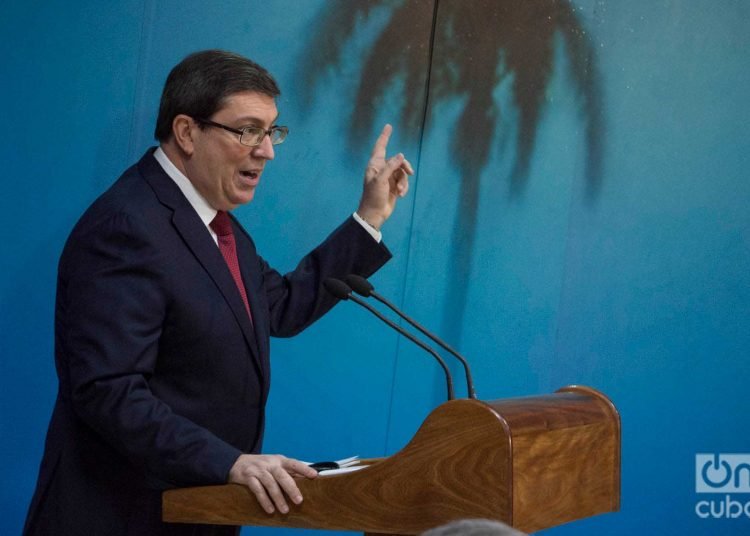Cuban Foreign Minister Bruno Rodríguez denounced this Wednesday an alleged maneuver by U.S. Secretary of State Mike Pompeo to include Cuba in the list of countries that sponsor terrorism.
The island’s foreign minister wrote on his Twitter account that with this move Pompeo seeks to “please the anti-Cuba minority in Florida.”
Denuncio maniobra del secretario de estado Pompeo para incluir a #Cuba en su lista de estados patrocinadores del terrorismo y complacer a la minoría anticubana en la Florida.#EEUU garantiza refugio e impunidad a grupos terroristas que actúan contra Cuba desde su territorio.
— Bruno Rodríguez P (@BrunoRguezP) December 30, 2020
Rodríguez added that “the United States guarantees refuge and impunity to terrorist groups that act against Cuba from its territory.”
According to The New York Times, Pompeo has three weeks to decide whether to include the island again on that list, which would limit the possibilities of President-elect Joe Biden to reverse Donald Trump’s foreign policy decisions.
The proposal to re-designate Cuba as a state sponsor of terrorism came from the State Department’s Office of Western Hemisphere Affairs, not from its Counter-Terrorism Office, which would generally be involved in such measures, American officials told the source.
The designation of the country on that list―which currently only includes North Korea, Iran and Syria―would trigger a series of immediate sanctions against the Cuban government, the report indicates.
Cuba was included in the list of state sponsors of terrorism for the first time in 1982, during the presidency of Ronald Reagan (1981-1989), according to Prensa Latina.
In 2015, the Barack Obama administration removed the island from that list, in the middle of the process of normalization of relations between the United States and Cuba, announced by the presidents of both countries at the end of 2014.
But with the arrival of Donald Trump to the White House in 2017, the United States returned to the era of sanctions against Havana and the intensification of the economic embargo, bans on cruise trips and limitations on U.S. tourism to Cuba, as well as the remittances sent by Cubans residing in that country to their relatives on the island.
In January 2019, the Trump administration stated that it was evaluating re-including Cuba on the list of state sponsors of terrorism, due to its actions in Venezuela and its support for the Colombian Army of National Liberation (ELN) guerrilla.
In an interview with EFE, the then head of Latin America at the White House, Mauricio Claver-Carone, assured that “Cuba seems to be willing and obsessed with writing its own script so it can be reinstated on that list.”
https://oncubanews.com/cuba-ee-uu/ee-uu-incluye-a-cuba-en-lista-de-paises-que-no-cooperan-por-completo-con-la-lucha-antiterrorista/
This year the United States included the island in a list of countries “that do not fully cooperate” with the fight against terrorism, the U.S. State Department reported in May.
According to the document, the United States government believes that under Section 40A of the Arms Export Control Act, these countries do not fully cooperate with Washington’s counterterrorism efforts. Based on that regulation, the sale or license for the export of defense articles and services to the states included in a list is prohibited.










